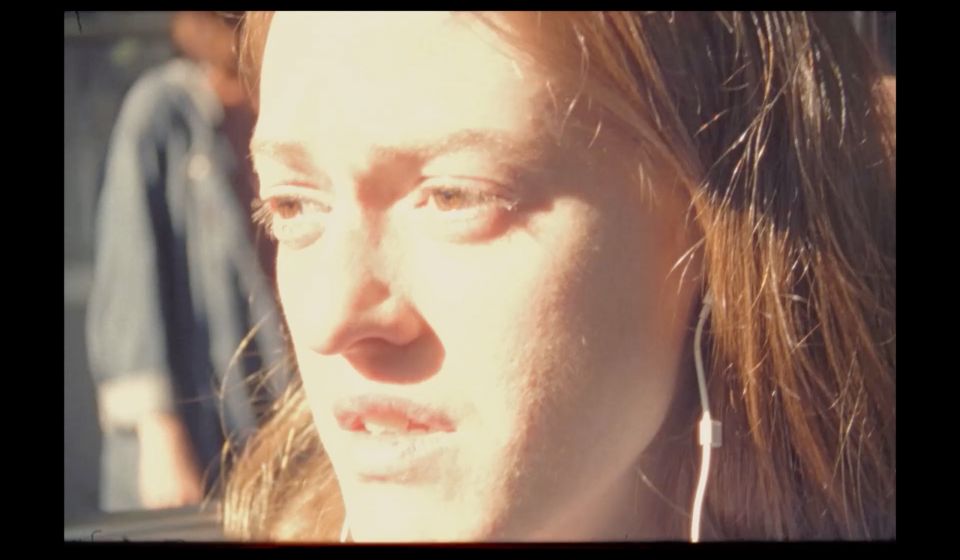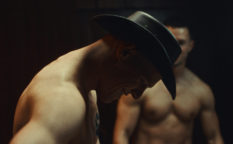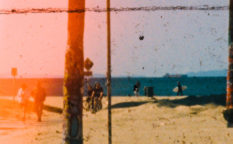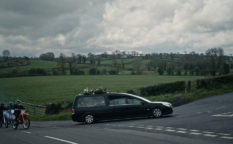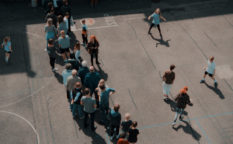Programme overview: Dance Apocalyptic
Uppsala Short Film Festival
International Competition, slot 2
As the great Alejandro Jodorowsky pointed out in his comeback autobiographic feature film The Dance of Reality (2013), the things we take for granted and fixed are actually quite fluid and the moves within them are more like dance than an easily measurable regular movement. That might be the programming idea behind the second segment of this year’s international competition at Uppsala International Short Film Festival called Dance Apocalyptic. The reality might resemble the apocalypse, the dance might be quite literal, but also metaphorical in this 6-film slot.
While the actions of ones affect the others in Rikke Gregersen’s short film The Affected, and the director explores the implications of that basic natural law on the social level, the social issues and the country’s troublesome history can be also addressed through the literal dance routines. This is the case with Barbara Wagner’s and Benjamin de Burca’s Swinguerra (2019), the only actual dance-powered musical in the slot. It all starts on the “reality” level, in something resembling a prison yard, where a troupe of cisgender males and transgender females start practising their routine under the supervision of the choreographer, but the action swiftly moves to other “plains” like dreams and fantasies. The energetic urban vibes in the film’s soundtrack provide enough dynamism, the choreography is detailed to perfection and it is perfectly caught by the cinematographer Pedro Sotero, making Swinguerra a danceable metaphor of Brasil’s present and past.

Film still from “Swinguerra”. Courtesy of Uppsala Short Film Festival 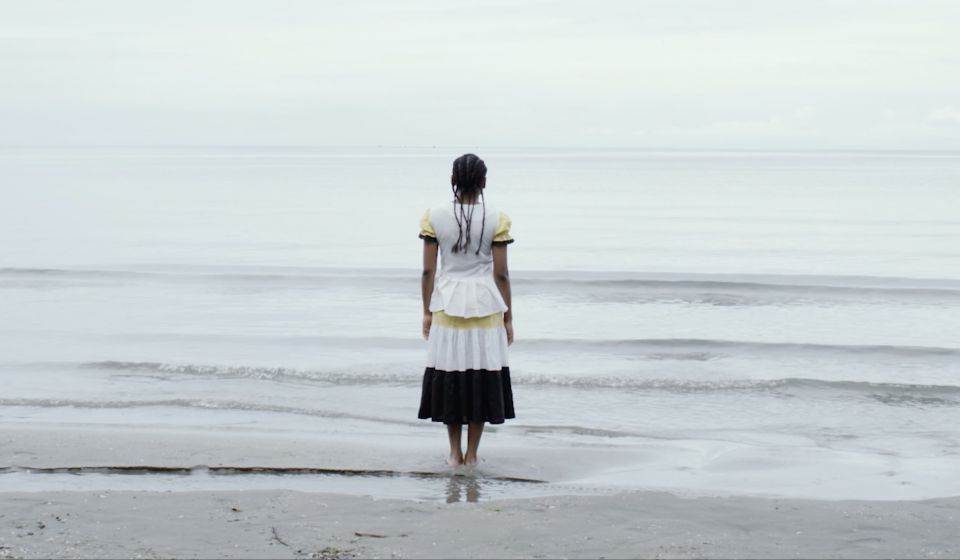
Film still from “Soul of The Sea”. Courtesy of Uppsala Short Film Festival
The reality dances, at one point quite literally, also in Elvis Rigoberto Caj Cojoc’s Soul of the Sea (2019). The unnamed protagonist (Patricia Carlota Martínez Rufino) is grieving for her recently passed mother in any way she could. Sometimes, the grieving is countered with self-destruction, sometimes with observation, sometimes with memories and sometimes with creation. Her mission is to keep the flame burning regarding the tradition, but also to enjoy a better life than her mother did.
The grieving, or at least acknowledgement that someone close might pass is also the huge motivator for the protagonist Madi (Madison Dima Villanueva) and her sister Lucia (Lucia Herzberg Rivas) in Sophia Mocorrea’s drama Matadoras. Structured as a three-act play with chapters titled “God Is Distracted”, “The Baptism” and “The Burial”, the film is actually about a hastened growing up of the two Argentine-German sisters after their already distracted mother ends up in hospital in a life-threatening condition. The guidelines the mother left them are either completely ephemeral and shallow, or religious, the father is distanced and the girls have to fend for themselves emotionally, while the games they play (filmed in a mock-home-video fashion and in boxy 4:3 aspect ratio, contrary to the rest of the film) mimic the reality surrounding them.
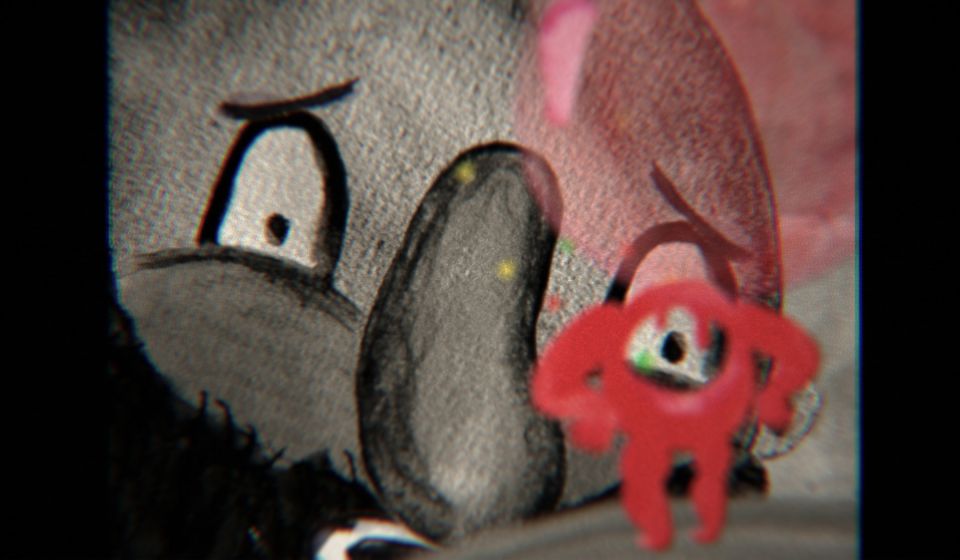
Film still from “Wood Child and Hidden Forest Mother”. Courtesy of Uppsala Short Film Festival 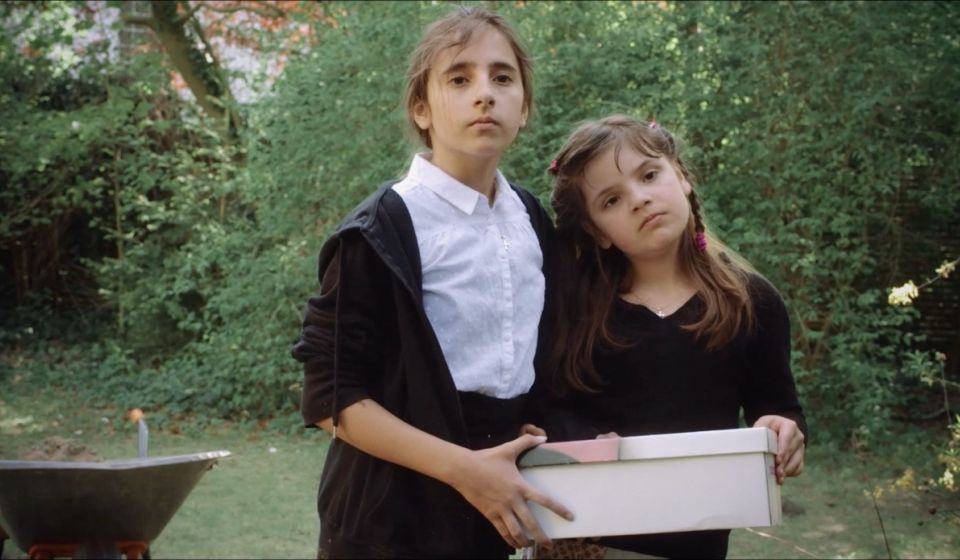
Film still from “Matadoras”. Courtesy of Uppsala Short Film Festival
The motif of mother is also present in Stephen Irwin’s short Wood Child and Hidden Forest Mother, revolving around the clash between the naked hunter and the innocent baby through whose bullet hole the world seems repaired: the destroyed house is whole again and the colourless, black and white world becomes colourful again. What happens when the hunter is translated into the new world in which he would become a woman and a mother? Irwin’s symbolism is not hard to decode, the “shock” aesthetics of the animation works for a while before getting a bit tiresome, but the fine-tuning in the soundtrack that starts on wind instruments before expanding to the full orchestra (possibly a nod to Disney’s animated short classic Peter and the Wolf) and then turning into electronic noise, makes Wood Child and Hidden Forest Mother quite a ride.
Finally, there is a lot of symbolism in Jacqueline Lentzou’s The End of Suffering (A Proposal), which serves as the tissue that connects the filmmaker’s experimental approach (image of the night sky turning into the animation, the heavily filtered documentary footage completely repurposed), the philosophical topic and the narrative device of a young woman talking with the universe. Ethereal regarding the content, it is a technical marvel to look at, thanks to the analogue cinematography, editing and sound design.
